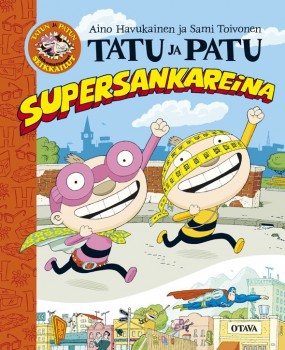Search results for "Riikka/2010/10/mikko-rimminen-nenapaiva-nose-day"
Happy birthday to us!
13 February 2014 | Letter from the Editors

Picture: Wikipedia
It’s been five years since Books from Finland went online, and we’re celebrating with a little bit of good news.
In the past year, the number of visits to the Books from Finland website has grown by 11 per cent. The number of US and UK readers grew by 29 per cent, while the number of readers in Germany – stimulated perhaps by the publicity Finnish literature is attracting as a result of its Guest Country status at this year’s Frankfurt Book Fair – increased by an astonishing 59 per cent.
We’re chuffed, to put it mildly – and very thankful to you, dear readers, old and new. More…
Jarkko Nieminen: Pelaamisen lumo [The fascination of the game]
20 August 2009 | Mini reviews, Reviews
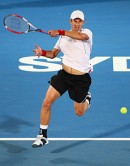 Pelaamisen lumo [The fascination of the game]
Pelaamisen lumo [The fascination of the game]
Helsinki: Avain, 2009. 175 p., ill.
978-952-5524-69-7
€ 38, hardback
Tennis is a curious game, as everyone who plays it knows – and even those who don’t, which is why it is such a popular sport. Although Jarkko Nieminen (born 1981), a professional player since 2000, has not yet won a Grand Slam event for Finland, in 2006 he was ranked no. 13. (Unfortunately, this spring Nieminen injured his wrist and missed the top matches of the season.) In this book (edited and published by his sister Anna-Riikka Carlson, who founded the publishing company Avain in 2003), Nieminen tells the story of his athletic career. ‘In Japan my visa said I was an “entertainer”,’ he recalls as he describes what it’s like to walk out on a court filled with thousands of spectators. Tennis is a gentleman’s game, a polite duel (or double), and Nieminen is certainly a gentleman par excellence. His personal story is designed to be strictly informative, as he chooses to keep his family life private, for example (his wife Anu, née Weckström, a Finnish multiple badminton champion, is referred to once). There is no doubt, though, that the reader will be convinced of Nieminen’s happy choice of an athletic profession.
Finlandia Prize for Fiction 2013
14 November 2013 | In the news
One of the following six novels will be awarded this year’s Finlandia Prize for Fiction, worth 30,000 euros: Ystäväni Rasputin (’My friend Rasputin’) by JP Koskinen, Hotel Sapiens (Teos) by Leena Krohn, Jokapäiväinen elämämme (‘Our everyday life’, Teos) by Riikka Pelo, Terminaali (‘The terminal’, Siltala) by Hannu Raittila, Herodes (‘Herod’, WSOY) by Asko Sahlberg and Hägring 38 (‘Mirage 38’, Schildts & Söderströms; Finnish translation, Kangastus, Otava) by Kjell Westö.
Half of the writers have already won the Finlandia Prize once, namely Krohn (1992), Raittila (2001) and Westö (2006).
Four of the six works deal with a historical character or history: Koskinen with the Russian ‘holy man’ Rasputin, Pelo with the Russian poet Marina Tsvetaeva, Sahlberg with Herod the Great of Judea. Westö goes back to the year 1938 in Finland.
Raittila’s realistic novel takes place on contemporary airports. Krohn, again taking a look at an unknown future, presents the reader with a imaginary Earth which no longer is habitable to humans.
The runners-up were chosen by a jury – appointed by the Finnish Book Publishers’ Association – of three: the journalists Nina Paavolainen and Raisa Rauhamaa and the translator Juhani Lindholm. The winner of the 30th Finlandia Prize for Fiction will chosen by theatre manager of the Helsinki City Theatre and actor Asko Sarkola, and announced on 3 December.
What Finland read in November
17 December 2010 | In the news
In November the latest thriller by Ilkka Remes, Shokkiaalto (‘Shock wave’, WSOY) topped the Booksellers’ Association of Finland’s list of the best-selling Finnish fiction. Sofi Oksanen’s prize-winning, much-translated 2008 novel Puhdistus (Purge, WSOY), has not left the best-selling list since it was awarded the Finlandia Prize for Fiction this autumn and was now number two.
Riikka Pulkkinen’s novel Totta (‘True’, Otava) was number three, and Tuomas Kyrö’s colllection of episodes from a grumpy old man’s life as told by himself, Mielensäpahoittaja (‘Taking offense’, WSOY), from last spring, occupied fourth place.
A new novel, Harjunpää ja rautahuone (‘Harjunpää and the iron room’, Otava), by the grand old man of Finnish crime, ex-policeman Matti Yrjänä Joensuu, was number five.
The most popular children’s book was a new picture book about two inventive and curious brothers, Tatu ja Patu supersankareina (‘Tatu and Patu as superheroes’, Otava) by Aino Havukainen and Sami Toivonen.
On the translated fiction list were books by, among others, Ildefonso Falcones, Jo Nesbø, Lee Child, Stephen King, Paulo Coelho and Paul Auster.
The non-fiction list included the traditional annual encyclopaedia Mitä missä milloin (‘What, where, when’, Otava, second place) as well as a political skit entitled Kuka mitä häh (‘Who what eh’, Otava) by Pekka Ervasti and Timo Haapala – the latter sold better, coming in at number one. In November the latest thriller by Ilkka Remes, Shokkiaalto (‘Shock wave’, WSOY) topped the Booksellers’ Association of Finland’s list of the best-selling Finnish fiction.
3 x Runeberg: poet, cake & prize
5 February 2014 | This 'n' that
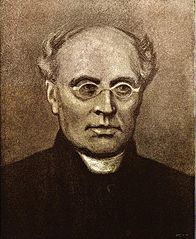
J.L. Runeberg. Painting by Albert Edelfelt, 1893. WIkipedia
Today, the fifth of February, marks the birthday of the poet J.L. Runeberg (1804–1877), writer, among other things, of the words of Finnish national anthem.
Runeberg’s birthday is celebrated among the literary community by the award of the Runeberg Prize for fiction; the winner is announced in Runeberg’s house, in the town of Borgå/Porvoo.
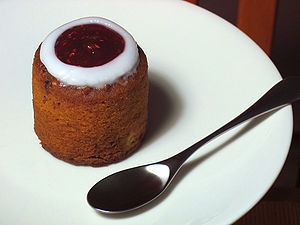
Runeberg’s favourite. Photo: Ville Koistinen
Mrs Runeberg, a mother of seven and also a writer, is said to have baked ‘Runeberg’s cakes’ for her husband, and these cakes are still sold on 5 February. Read more – and even find a recipe for them – by clicking our story Let us eat cake!
The Runeberg Prize 2014, worth €10,000, went to Hannu Raittila and his novel Terminaali (‘Terminal’, Siltala).

Hannu Raittila. Photo: Laura Malmivaara
According to the members of the prize jury – the literary scholar Rita Paqvalen, the author Sari Peltoniemi and the critic and writer Merja Leppälahti – they were unanimous in their decision; however, the winner of the 2013 Finlandia Prize for Fiction, Jokapäiväinen elämämme (‘Our everyday lives’) by Riikka Pelo, was also seriously considered.
Read more about the 2014 Runeberg shortlist In the news.
Summer child
30 September 1988 | Archives online, Fiction, Prose
A short story from Resa med lätt bagage (‘Travelling light’, 1987). Introduction by Marianne Bargum
From the very beginning it was quite clear no one at Backen liked him, a thin gloomy child of eleven; he looked hungry somehow. The boy ought to have inspired a natural protective tenderness, but he didn’t at all. To some extent, it was his way of looking at them, or rather of observing them, a suspicious, penetrating look, anything but childish. And when he had finished looking, he commented in his own precocious way, and my goodness, what that child could wring out of himself.
It would have been easier to ignore if Elis had come from a poor home, but he hadn’t. His clothes and suitcase were sheer luxury, and his father’s car had dropped him off at the ferry. It had all been arranged over the phone. The Fredriksons had taken on a summer child out of the goodness of their hearts, and naturally for some compensation. Axel and Hanna had talked about it for a long time, about how town children needed fresh air and trees and water and healthy food. They had said all the usual things, until they had all been convinced that only one thing was left in order to do the right thing and feel at ease. Despite the fact that all the June work was upon them, many of the summer visitors’ boats were still on the slips, and the overhaul of some not even completed. More…
Briefcase man
31 December 2000 | Archives online, Fiction, Prose
Extracts from the novel Aura (Otava, 2000). Introduction by Mervi Kantokorpi
He was born in the Russian Grand Duchy of Finland the year the world caught fire. He learned to read the year of the revolution, and spoke two languages as his mother tongue border – language and enemy language, as he often used to say. He was proud of only one of his languages; the other, he loved secretly. He spoke one loudly, the other softly, almost in a whisper.
At night, on the telephone, he spoke far away – you could see it, even in the dark, from his expression, his half-closed eyes sometimes breaking into song. It was so beautiful and soft that I wept under the blankets and hated myself because of the effect that language had on me.
Stinking tinker Karelian trickster Russian drinker, little Russky’s dancing in a leather skirt, skirt tears and oh! little Russky’s hurt.
Count to ten, he said. But count in Finnish. Or Swedish, that’ll baffle them. And if they call you a Swedish bastard, it’s not so bad. I’ve taught you the numbers in Arabic and Spanish, too, but I don’t think you’ll be able to remember them yet. More…
In with the new?
17 December 2010 | Letter from the Editors
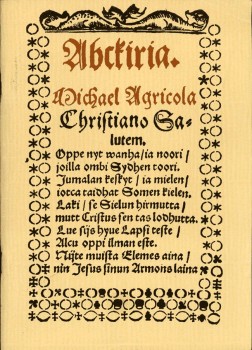
Abckiria (‘ABC book’, 1543): the first Finnish book, a primer by the Reformation bishop Mikael Agricola, pioneer of Finnish language and literature
In August 2010 the American Newsweek magazine declared Finland (out of a hundred countries) the best place to live, taking into account education, health, quality of life, economic dynamism and political environment.
Wow.
In the OECD’s exams in science and reading, known as PISA tests, Finnish schoolchildren scored high in 2006 – and as early as 2000 they had been best at reading, and second at maths in 2003.
Wow.
We Finns had hardly recovered from these highly gratifying pieces of intelligence when, this December, we got the news that in 2009 Finnish kids were just third best in reading and sixth in maths (although 65 countries took part in the study now, whereas in 2000 it had been just 32; the overall winner in 2009 was Shanghai, which was taking part for the first time.)
And what’s perhaps worse, since 2006 the number of weak readers had grown, and the number of excellent ones gone down. More…
Below and above the surface
13 March 2014 | Extracts, Non-fiction
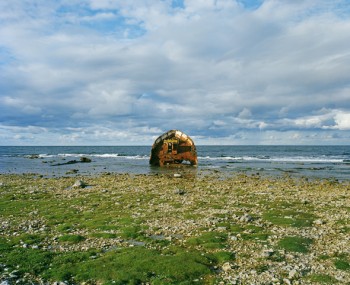
Fårö, Gotland, Sweden. Photo: Lauri Rotko
The Baltic Sea, surrounded by nine countries, is small, shallow – and polluted. The condition of the sea should concern every citizen on its shores. The photographers Jukka Rapo and Lauri Rotko set out in 2010 to record their views of the sea, resulting in the book See the Baltic Sea / Katso Itämerta (Musta Taide / Aalto ARTS Books, 2013). What is endangered can and must be protected, is their message; the photos have innumerable stories to tell
We packed our van for the first photo shooting trip in early May, 2010. The plan was to make a photography book about the Baltic Sea. We wanted to present the Baltic Sea free of old clichés.
No unspoiled scenic landscapes, cute marine animals, or praise for the bracing archipelago. We were looking for compelling pictures of a sea fallen ill from the actions of man. We were looking for honesty. More…
Growing together. New Finnish children’s books
28 January 2011 | Articles

Hulda knows what she wants! From the cover of a new picture book by Markus Majaluoma (see mini reviews*)
What to choose? A mum or dad buys a book hoping it will be an enjoyable read at bedtime – adults presume a book is a ‘good’ one if they themselves genuinely enjoy it, but children’s opinions may differ. Päivi Heikkilä-Halttunen reviews the trends in children’s literature published in Finland in 2010, and in the review section we’ve picked out a handful of the best on offer
Judging by the sheer number and variety of titles published, Finnish children’s and young people’s fiction is alive and well. If I had to describe the selection of books published in 2010 in just a few words, I would have to point to the abundance of titles and subject matters, and the awareness of international trends.
Since 2000 the number of books for children and young people published in Finland each year – including both translated and Finnish titles – has been well in excess of 1,500, and increasing, and this growth shows no signs of slowing down.
Little boys, ten-year-olds who don’t read very much and teenage boys, however, were paid very little attention last year. Although gender-specificity has never been a requirement of children’s fiction, boys are notably pickier when it comes to long, wordy books, especially those that might be considered ‘girly’. More…
Brief lives
30 September 1989 | Archives online, Fiction, Prose
Rosa Liksom’s characters live in the tiny villages of empty Lapland, speaking a dialect that rings oddly in the ears of the southern Finnish majority; or they may inhabit anonymous towns, but there, too, life is full of the anguish of existence. Liksom, whose black comedy can be compared with that of the Danish writer Vita Andersen, is able to cram into her short texts complete life histories, bizarre, comic or tragic. Her first volume of short stories, Yhden yön pysäkki (‘One night stand’) appeared in 1985; the following short stories are from Tyhjän tien paratiisit (‘Paradises of the open road’, 1989)
We got hitched up the 14th of November and by the end of the month it was all over. As far as I’m concerned call it a marriage exactly two weeks too long. We hadn’t set eyes on each other till the Pampam that’s the place me and the girls go after work for a drink and I was sitting there having one with them when who comes through the door but this bloke and it hits me. That bloke’s for me. In the end I went over to his table and said up yours stud. We went over to my place to bunk down and after that I couldn’t get the sod out. The bloody shitbag got his claws into me and hung on just on the strength of that one night. He glued himself to my bed. Lay there flat out when I set off to work and shit he was still there when I came back only arse up this time. More…
The faraway island
31 March 2007 | Archives online, Fiction, Prose
Kaukainen saari, a short story from the collection Elämän ja kuoleman pidot (‘The feast of life and death’, 1945). Introduction by Juhani Niemi
For as long as they could remember, Hannes and Pekka had felt a great fascination for the lonely little island out in the open sea, clearly visible from the shore at home. Thickly overgrown with unusually tall pines, the island was like a wondrous bouquet in a great vase of sea. It was in sunshine from morning till night. At the very instant that the tip of the sun peeped up over the horizon, its rays were already caressing the tops of the little island’s tallest trees, and when the sun set behind the blackness of the islands to the west, those same treetops were tinged with a bright, hot glow. The winds and storms touched it more vehemently than any other place. No matter which direction the wind came from, the island was always defenseless, but, happily, ready for anything. In stormy weather the waves flung themselves against its stony shore and sometimes nearly as high as the treetops. The wind roared in the dense branches of its trees more wildly and violently than anywhere else. When it rained, it was as if the island were hiding among the grey curtains of mist, looming dimly and secretly. In the autumn, when all the other woods were splashed along their flanks with yellow and russet, and gradually undressed until they were half-naked, the little island’s tall pine trees rose up from the grim autumn surf as lush and green as always. And in the winter, when the sea froze and snow covered everything in a mantle of white, the island dressed itself in ice and rimy frost like royal robes covered in millions of sparkling diamonds. More…
The pearl
30 December 1999 | Fiction, Prose
A short story from Tutkimusmatkailija ja muita tarinoita (‘The explorer and other stories’, Loki-kirjat, 1999)
My name is Jan Stabulas. I am one of the quietest and inconspicuous workers in our department store, this giant ant-heap swarming with people. No one really pays any attention to me, although I am on show all the time. My job is quite simple: to stand in the menswear department, dressed in fashionable clothes. Now that doesn’t take much, I have heard it said. Well, try it yourself. Try standing for ten hours, without moving, in an awkward, even an unnatural, position, wishing that the air conditioning would work when it was hot, or that it would be switched off when you can feel the draught cutting you to the marrow. Think how the customers stare at you as they pass by, like an object which they cannot buy, and consider your words once more. More…
Animal crackers
30 June 2004 | Children's books, Fiction
Fables from the children’s book Gepardi katsoo peiliin (‘A cheetah looks into the mirror’, Tammi, 2003). Illustrations by Kirsi Neuvonen
Rhinoceros
 The rhinoceros was late. She went blundering along a green tunnel she’d thrashed through the jungle. On her way, she plucked a leaf or two between her lips and could herself hear the thundering of her own feet. Snakes’ tails flashed away from the branches and apes bounded out of the rhino’s path, screaming. The rhino had booked an afternoon appointment and the sun had already passed the zenith.
The rhinoceros was late. She went blundering along a green tunnel she’d thrashed through the jungle. On her way, she plucked a leaf or two between her lips and could herself hear the thundering of her own feet. Snakes’ tails flashed away from the branches and apes bounded out of the rhino’s path, screaming. The rhino had booked an afternoon appointment and the sun had already passed the zenith.
When the rhinoceros finally arrived at the beautician’s, the cosmetologist had already prepared her mud bath. The rhino was able to throw herself straight in, and mud went splattering all round the wide hollow. More…
Song without words
30 June 2003 | Archives online, Fiction, Prose
Extracts from the novel Näiden seinien sisällä me emme näy (‘Within these walls we are invisible’, Tammi, 2003). Introduction by Maria Säntti
During the night the child was with Ellen, in her dreams. Ellen was turning over a pack of cards, the king rose, she followed the course of events from outside as it proceeded without her. The child was resting, settled, repeating her profile. The world was beautiful and all of them together in the face of death. Time stood still. A nocturnal bird sang through the rain. Ellen awoke, at night time does not stop; she thought, stepping from one memory to another. Everything was unfinished. It was a watchful night before words.
In the morning time rushed forward. Brain chemistry, Ellen thought as she lay in bed, mere brain chemistry. Then the train of thought broke off, a bright light suddenly snapped on as Tapani pressed the bedroom switch to search the wardrobe for a clean shirt. Ellen got up quickly, during the night the child had grown into something of which she knew nothing. She began to make porridge, and watched as the child opened like a plant toward the light. More…

